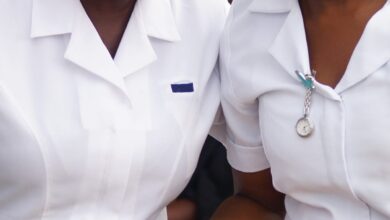Pregnant women abandon health centres for herbalists, birth attendants in Kwara communities

We’ll act if receive official complaint from residents – Commissioner
Adebayo Olodan with agency report
Kehinde Adebayo speaks boastfully of his traditional medical practice. His pride is rooted in the fact that residents of Egosi and Odo-Owa, Oke-Ero Local Government Area of Kwara State, seeking care for their pregnant women prefer him to the health centres in the area.
“Most times I take three deliveries in a night. I’ll handle one, my wife and eldest son will handle the other two,” he informed Premium Times.
The aged Adebayo, who is popularly called Baba Apiri, is described by residents as a “renowned herbalist” who specialises in child delivery.
Handling child delivery without any licence or any formal training in obstetrics, Adebayo does not use hand gloves, not even after attending a health seminar reportedly organised by the Oke-Ero Local Government Area of Kwara State.
Justifying non-use of hand gloves, the herbalist said, “There are times one needs to recite some incantations on the bare palm before touching the pregnant women’s private parts.”
As such, he exposes himself, the mother and the foetus or baby to risks of possible blood contamination that could have been prevented by hand gloves.
Apart from exposing himself to health risks, Adebayo also endangers his life alongside that of the pregnant woman and her baby as hand gloves are meant to prevent contamination of blood or body tissues.
Despite the aforesaid, Adebayo remains well-patronised by residents and his popularity continued to rise due to the absence of what could have been a more professional alternative.
The community health centres in Egosi and Odo-Owa, like many in other parts of the country, are in deplorable conditions, lacking both human and material resources.
The state of the health centres in the two communities has not made a hero in the old herbalist alone. There is also another woman operating within the premises of Christ Apostolic Church, just within a walking distance of one of the health centres. She is popularly called ‘Mummy’ but her real name is Janet Oyelowo.
Mrs Oyelowo claimed she received training in midwifery but she handles child delivery alone, except with the assistance of a friend and all she has got in her pharmaceutical box are anti-malaria drugs.
“When they come for deliveries like that, we test them for malaria parasite and we treat them,” she said. “That’s all.”
But when there are complications, she said her patients would be transferred to the general hospital, some nine kilometres from her house.
“By the Grace of God, we don’t usually have many complications,” she replied in response to a question on the referral statistics.
However, despite the dangerous gaps in the practices of Baba Apiri and mummy, the testimonies from residents of Egosi and Odo-Owa have been positive.
Morenikeji, a pregnant mother, explained how she gave birth to her current two children at Mrs Oyelowo’s residence without complications.
“This pregnancy will also be delivered at Mummy’s house,” she said, smiling as she touched her belly.”
She and other residents spoke of the poor state of the health centres, and trust in Mummy, as reasons for not using them.
During visits to four health centres in Oke-Ero local government, reports from the Community Health Officers (CHO) showed that most of the facilities had not recorded any child delivery in over three months.
Folashade Olokundu at Odo-Owa Primary Healthcare Centre (PHC) pointed at the Church area when asked for the number of deliveries taken in the last three months.
“That’s where the pregnant women in this town visit. They go to the midwife (Mummy) over there.”
It is the same situation at Egosi, where the old herbalist resides. The CHO in-charge of Egosi clinic, Matthew Ajolaogun, attested to the boom of the herbalist’s business at the expense of the clinic.
“They’ve abandoned the clinic for the herbalist’s home close-by,” he said.
However, a simple review shows the clinics are in deplorable conditions. There is lack of health personnel, water facility and clean toilets in the health centres.
“The borehole outside is no longer functional. There is no water in the toilet,” Mrs Olokundu said.
During our visit, early April, just one health officer and two health officers reported for duty at Odo-Owa and Egosi PHCs respectively.
Added to the absence of necessary equipment, the health facility at Egosi is unkempt. On a tour of the centre, it was discovered that the rooms were dusty.
Also, the building used in Kajola is an uncompleted one – yet to be plastered, without ceilings, windows and doors. Nuibat Sulu, who is in-charge of the centre, complained of the unavailability of drugs and necessary facilities.
“Even this uncompleted building is a rented one,” Mrs Sulu disclosed.
That of Iloffa was donated by the king of the town. The limitation to quality healthcare dispensation in Iloffa is the lack of necessary equipment. According to the CHO, Mayowa Agboola; “The BP (blood pressure) apparatus is not okay and the only bed in the PHC was borrowed from the cottage hospital.”
At the Oke-Ero LGA, the Health Director, Motunrayo Ibrahim, blamed lack of finance for the poor state of the health centres in the local government.
Mrs Ibrahim confirmed that none of the health centres has access to a good water source as well as basic medical facilities.
Reacting to the state of health centres in Oke-Ero, the Commissioner for Health, Alhaji Usman Rifun in a telephone interview with our reporter last night, said he is yet to resume to office but promised to attend to such situation if officially informed after his resumption today.
“The situation at Oke-Ero has not been brought to my notice because I am yet to resume at the office. I will be doing so tomorrow and I want to urge any community that may have complaint over the health facilities in their area or personnel to please write the state government through my office officially and I can assure you that we will look into such issues,” Rifun stated.





